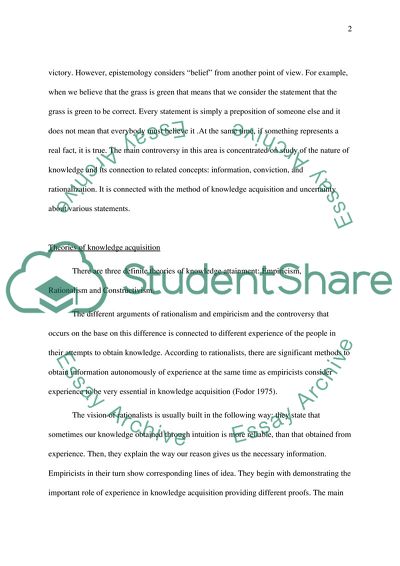Cite this document
(Theories of Knowledge Attainment: Epistemology and Ontology Term Paper, n.d.)
Theories of Knowledge Attainment: Epistemology and Ontology Term Paper. Retrieved from https://studentshare.org/social-science/1554889-what-is-epistemology
Theories of Knowledge Attainment: Epistemology and Ontology Term Paper. Retrieved from https://studentshare.org/social-science/1554889-what-is-epistemology
(Theories of Knowledge Attainment: Epistemology and Ontology Term Paper)
Theories of Knowledge Attainment: Epistemology and Ontology Term Paper. https://studentshare.org/social-science/1554889-what-is-epistemology.
Theories of Knowledge Attainment: Epistemology and Ontology Term Paper. https://studentshare.org/social-science/1554889-what-is-epistemology.
“Theories of Knowledge Attainment: Epistemology and Ontology Term Paper”. https://studentshare.org/social-science/1554889-what-is-epistemology.


